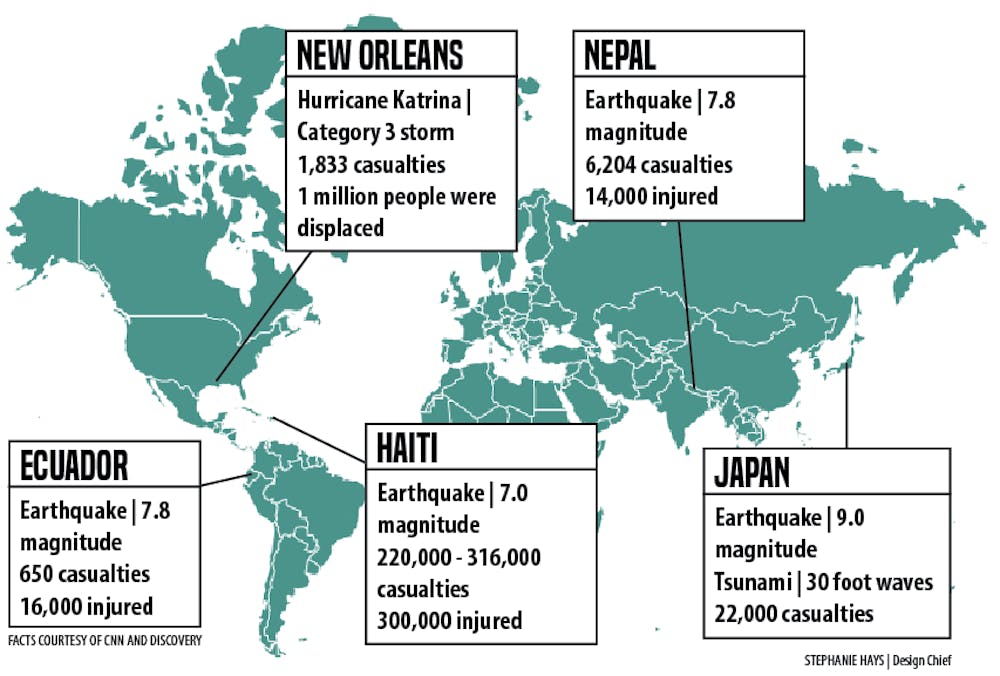Tragedy struck Ecuador April 16 in the form of a 7.8-magnitude earthquake. Despite tremendous relief efforts and searches within the country, there were more than 650 casualties and 16,000 injuries. Reeling from news of the horrifying humanitarian crisis, countries around the world responded by sending food, clothing and money to the survivors.
Elon University hosted its own relief campaign, spearheaded by freshman Lucia Jervis, an Ecuadorean native and style reporter at The Pendulum. Held noon to 7 p.m. April 25 at the Lakeside Plaza, the event raised money through cash and Phoenix Cash donations.
Local businesses, including Pelican’s SnoBalls and The Mission, donated their services for the cause. El Centro de Espanol, the Catholic Campus Ministry and the Latin American Student Organization also supported Jervis and her team.
“We got tremendous support from people on campus,” Jervis said. “Many organizations offered their help, and professors and students donated their time and money. Father Gerry Waterman and Chaplain Jan Fuller even came to say a prayer for those struggling in Ecuador.”
Among those who helped Jervis raise funds for Ecuador was senior Bernardo Missura, an international business major and fellow Ecuadorean.
Missura said he was glad to find a way he could offer support even though he is far away from those he knows are in need of assistance.
“It’s horrible — my country and my people are suffering,” Missura said. “It’s indescribably frustrating to be here when I could be doing more back home. But it is amazing to know that I can actually help from here, and that the school supports us.”
Though El Centro’s fundraiser was largely student-organized and operated, the university tries to assist student-led events.
Jervis said it typically takes a few weeks to be approved for a campus space like the Lakeside Plaza, but due to the nature of the incident and event, it only took a few days for approval thanks to the administration.
Mary Morrison, assistant dean of students and director of the Kernodle Center for Service Learning and Community Engagement, said that Elon regularly supports students’ effort to raise funds for disaster victims.
“Every situation is different and requires different degrees of attention, and sometimes it’s just by chance [whether a certain group affected by disasters receive financial support],” Morrison said. “Last week, there was an earthquake in Ecuador, an earthquake in Japan and flooding in Texas — all of them cost lives, but it just turned out Ecuador got the focus of the school community.”
Morrison noted how assistance can sometimes continue long after disasters. Eleven years after Hurricane Katrina struck New Orleans, the school continues to send students, faculty and staff down to help with the ongoing rebuilding process. This has resulted from personal relationships that have formed throughout the years.
Several students often want to physically be in the affected region to provide relief, but Morrison recognizes a physical presence is not always plausible. She said the best way to help is with donations. While it may feel like a small gesture, the people in charge of efforts can most appropriately allocate funds.
She said the Kernodle Center and the Office of Student Life send emails in the wake of disasters to educate students on which charities are the best to donate to.
“We encourage people to donate,” Morrison said. “It’s the most impactful thing they can do without traveling to the affected area. But we also encourage people to be thoughtful of where they send their money.”


